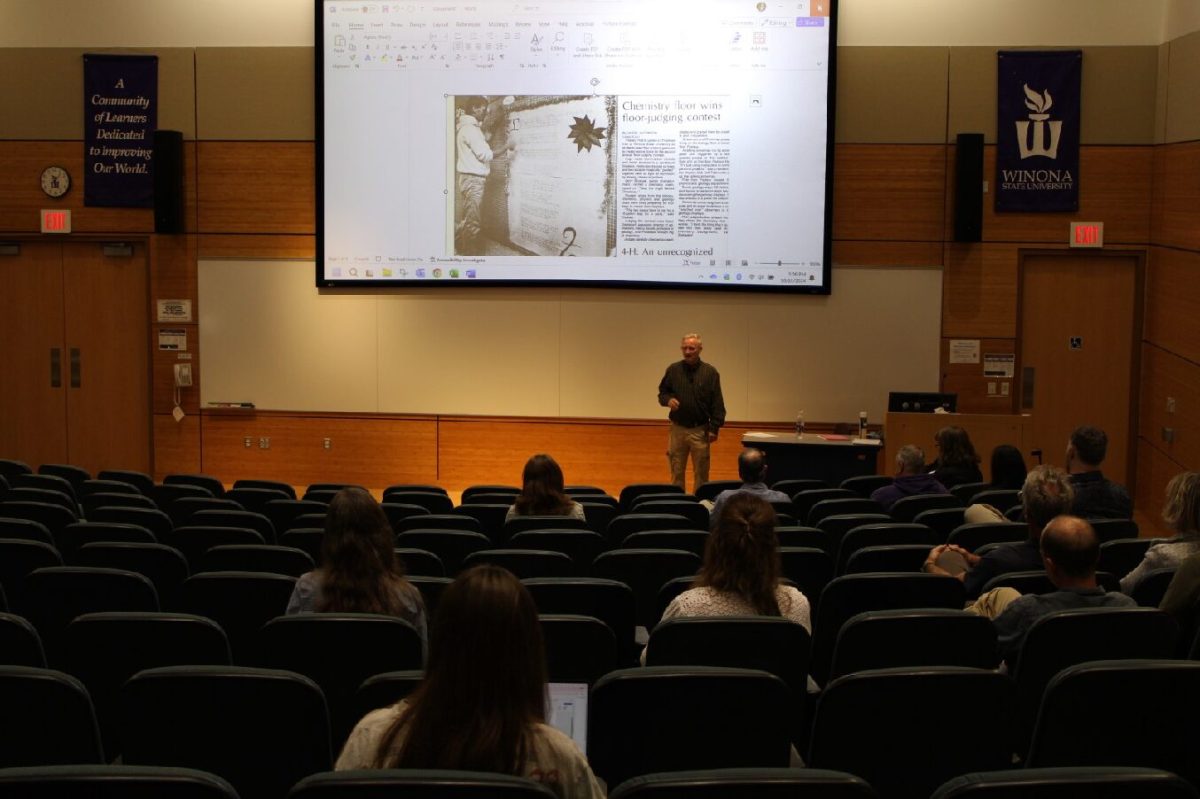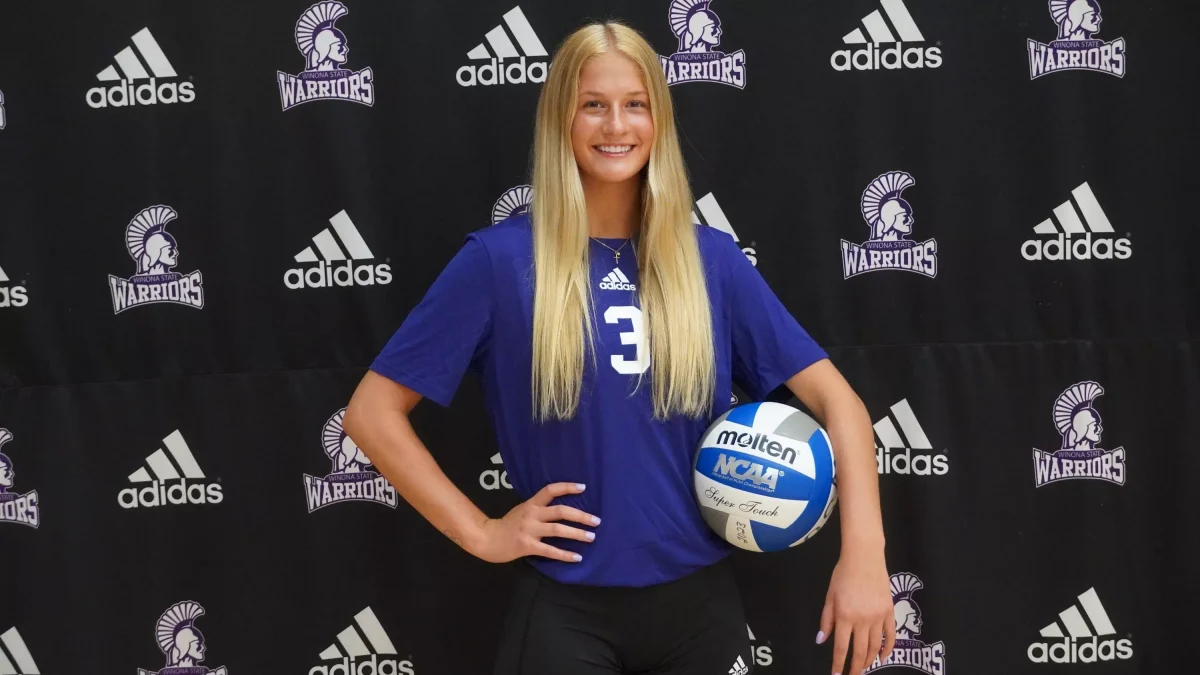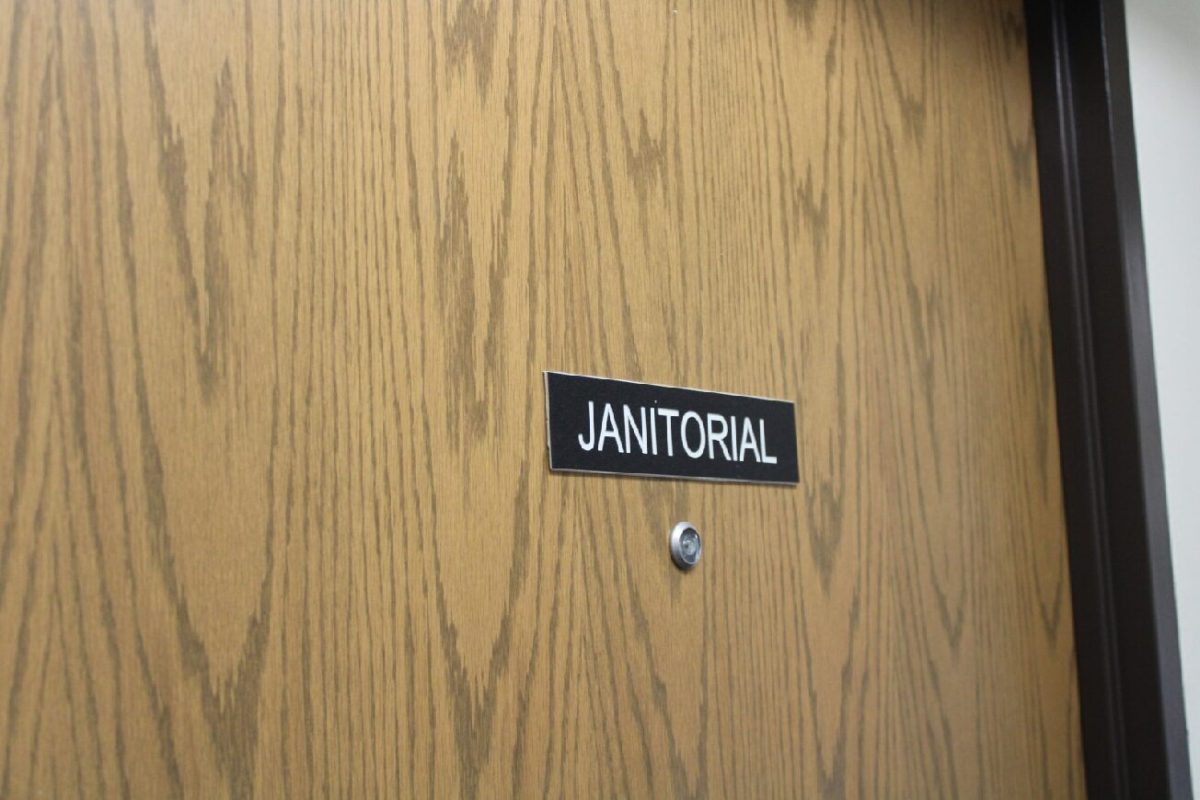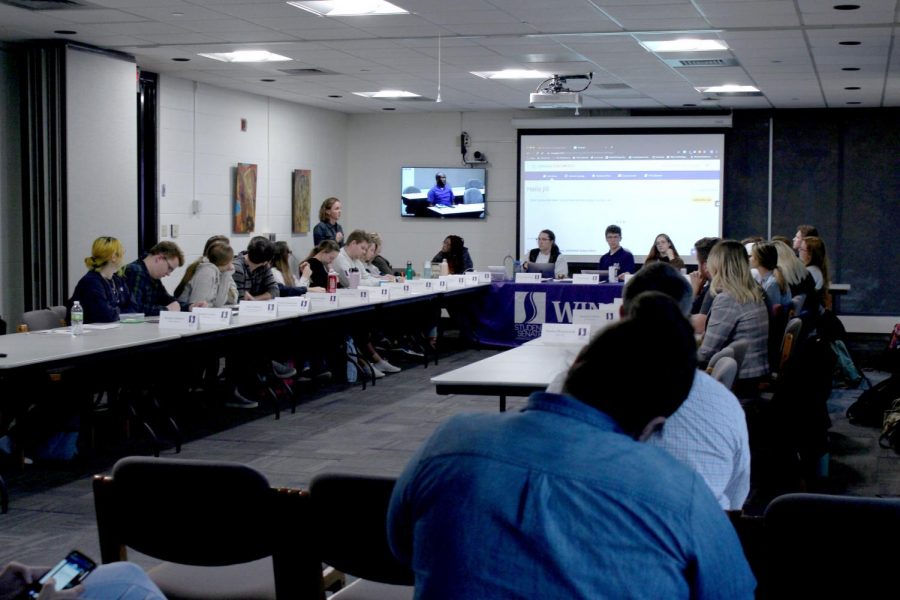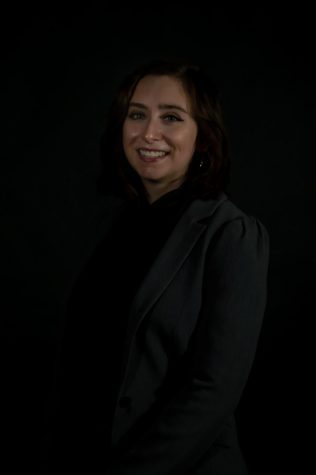Senate hears counseling issues, money requests
Jill Meyers-Welch from the company Cengage speaks to Student Senate about her company on Wednesday, Oct. 23. Cengage is an online textbook subscription whose aim is to lower textbook costs to students.
October 30, 2019
Wednesday, Oct. 23 Winona State University’s Student Senate (WSUSS) held their weekly meeting in the Purple Rooms of Kryzsko Commons.
The meeting began with Student Senate President Ben Ellgen reciting the land recognition statement. This statement recognizes that Winona State is situated on the ancestral lands of the Dakota people.
The Oct. 23 senate meeting had four guest speakers.
The first guest speaker was Mick Lynch from Counseling and Wellness Services. He began his presentation by describing what Counseling and Wellness Services does: 50-minute sessions with students and crisis walk-ins.
Last year, approximately 2,800 students used the services provided by Counseling and Wellness Services. Last month alone, 318 new students sought appointments.
As a result of the sudden growth of students seeking counseling appointments, Counseling and Wellness Services had to stop taking on new clients, and instead moving new clients onto a waiting list.
Before the waiting list was implemented, students had to wait two weeks to set up appointments, and a month for the initial triage appointment.
Counseling and Wellness Services would need at least one part-time counselor in order to be fully staffed, but even this may soon not be enough due to the sudden rush of students seeking appointments.
Lynch said he has only seen the need for counseling to go up over the years.
Later in the meeting, Student Senate discussed the issue. They later voted to recommend the hiring of at least one additional counselor prior to the spring semester.
President Ellgen described what it means when WSUSS makes a recommendation such as this.
“The idea behind [the recommendation] is to serve as a voice for students to the administration,” Ellgen said. “We wrote how we feel, and we will pass that motion along to President Olson and their cabinet.”
The second guest speaker was Alexis Salem from Students for Palestinian Liberation.
Salem was seeking funds to send 10 students to the National Students for Justice in Palestine conference at the University of Minnesota, and also to bring a guest speaker to Winona State to give two workshops.
The conference would allow club members to learn not only about Palestine, but also South West Asia and North Africa and bring that information back to Winona State. The cost of the conference would be $1,007.06.
Salem is also looking to bring Stephanie Skora, a trans Jewish woman, to Winona State to lead two workshops. The first workshop is titled “Anti-Semitism in America: The Queer Jewish Perspective.”
Salem would need $3,000 for two workshops, or $2,000 for one workshop. Her request was tabled until the following week to give WSUSS time to discuss.
The third guest speaker was Ralph Kaehler, from St. Charles, Minnesota, who is running for Congress.
Kaehler’s main goals are to fix healthcare and combat climate change.
Kaelhler said he has a few things that he wants Winona State students to know about his campaign.
“I think it’s important for [students] to understand that this is a chance to really make a difference. I am stepping forward in this campaign because I think it’s imperative that we continue to fix healthcare and build upon the program that we have now, not dismantle it,” Kaehler said. “I also think we should address climate change, and that we have representation in Congress from Minnesota, for Minnesota, rather than have candidates who come from D.C. and want to represent us.”
The final guest speaker was Jill Meyers-Welch, from the company Cengage, “the Netflix of Textbooks.”
A subscription to Cengage costs $119 per semester or $179 per year and allows students access to 20,000 E-books. The company will also rent students paper copies of books for $7.99. The company aims to reduce textbook cost for college students.
Meyers-Welch said Cengage has had the most impact so far on Winona State’s College of Business.



